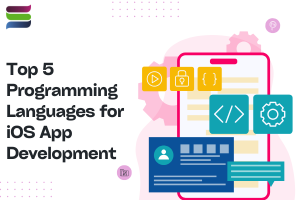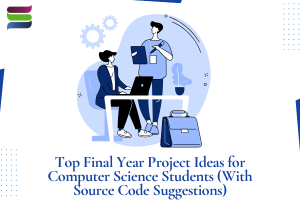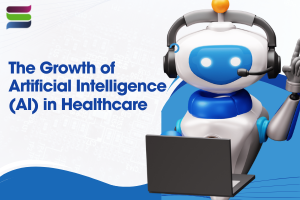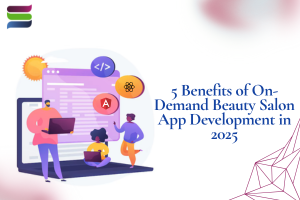A Systematic Review of Generative AI in Education
Update on 10 Oct, 2025 by Spectrics Solutions

The education sector has been experiencing a remarkable transformation over the past decade, largely driven by advancements in technology. Among these innovations, AI in Education has emerged as a groundbreaking tool, reshaping teaching methodologies, learning processes, and administrative efficiency. Generative AI in education is gaining attention because it can personalize learning, create content automatically, and make learning more engaging for students.
Understanding Generative AI in Education
Artificial intelligence means machines copying human intelligence so they can do tasks like solving problems, making decisions, and understanding language. When applied to education, generative AI can produce new content, create interactive learning experiences, and assist educators in curriculum development. For instance, AI can generate quizzes, provide instant feedback on assignments, and even craft lesson plans tailored to individual student needs.
With the rise of Artificial Intelligence in Education, educators can now move beyond traditional teaching methods, embracing technology that allows for real-time adaptation and personalized learning paths. This shift ensures that students receive customized guidance, enhancing their academic performance and fostering a more engaging learning environment.
Key Applications of Generative AI in Education
Personalized Learning Experiences
Generative AI enables the creation of adaptive learning platforms that respond to individual student performance. By analyzing patterns in student behavior, AI can adjust the difficulty of tasks, suggest supplementary materials, and identify areas where learners require additional support. Schools and institutions leveraging AI in Education can thus provide tailored instruction that meets the unique needs of each student.Content Creation and Automation
A big benefit of generative AI is that it can automatically create content. From generating essays and assignments to developing interactive simulations and study guides, AI reduces the workload of educators while maintaining high-quality educational resources. AI makes it easy to keep learning materials updated and relevant.Intelligent Tutoring Systems
AI tutoring systems give students instant help, working like a personal tutor. These systems can answer questions, explain things, and help learners understand difficult topics, making it easier for them to learn on their own. By incorporating AI Development Services, educational institutions can develop these intelligent tutoring solutions, improving learning outcomes significantly.Enhanced Administrative Efficiency
Generative AI also makes administrative tasks easier, not just teaching and learning. From automating grading to predicting student performance and managing schedules, AI optimizes operational workflows. Schools can rely on AI Services to implement such tools, freeing educators to focus more on pedagogy rather than administrative duties.
Challenges and Considerations
While the benefits of generative AI in education are evident, several challenges must be addressed. Concerns regarding data privacy, algorithmic bias, and the digital divide remain critical. Moreover, the reliance on AI-driven solutions requires educators to receive proper training to integrate these technologies effectively into their teaching strategies. Artificial Intelligence Development Companies like Spectrics Solutions play a crucial role in designing AI tools that are not only effective but also ethical and secure.
The Role of AI Development Companies
Partnering with a specialized AI App Development Company in Ahmedabad or other regions ensures that educational institutions gain access to cutting-edge solutions. These companies provide comprehensive AI Development Services, including machine learning models, predictive analytics, and intelligent content generation platforms. By leveraging the expertise of companies like Spectrics Solutions, schools can implement tailored AI solutions that enhance learning experiences, optimize administrative workflows, and foster innovation in teaching methodologies.
Future Prospects of Generative AI in Education
The potential of Artificial Intelligence in Education extends far beyond current applications. As AI algorithms become more sophisticated, generative AI could revolutionize curriculum design, enable immersive virtual learning environments, and facilitate lifelong learning opportunities. Personalized learning experiences will become more accurate and dynamic, ensuring students can progress at their own pace and achieve academic success.
Furthermore, integrating AI into education aligns with the broader goal of preparing students for a technology-driven future. By familiarizing learners with AI tools and applications, educational institutions are equipping them with essential skills required in the modern workforce. Companies offering AI Services and AI Development Services will continue to drive innovation, creating smarter classrooms and more effective learning platforms.
Conclusion
Generative AI isn’t just a future idea anymore; it’s already changing how education works today. From personalized learning and intelligent tutoring to content automation and administrative efficiency, the applications of AI in Education are vast and transformative. By collaborating with experienced Artificial Intelligence Development Companies like Spectrics Solutions, educational institutions can implement robust AI-driven solutions tailored to their unique needs.
For schools and universities aiming to embrace this technological revolution, partnering with an AI App Development Company in Ahmedabad or similar service providers ensures access to the latest innovations in Artificial Intelligence in Education. As we move forward, generative AI promises to redefine learning, making education more adaptive, engaging, and inclusive for students worldwide.
The future of education is undeniably intertwined with artificial intelligence, and the institutions that adopt these tools early will be better positioned to provide high-quality, personalized, and innovative learning experiences.



